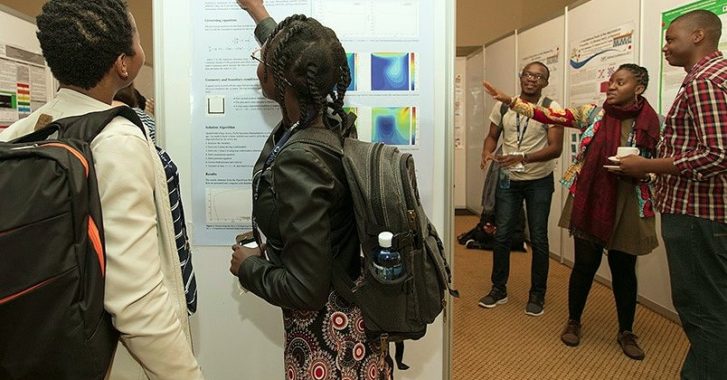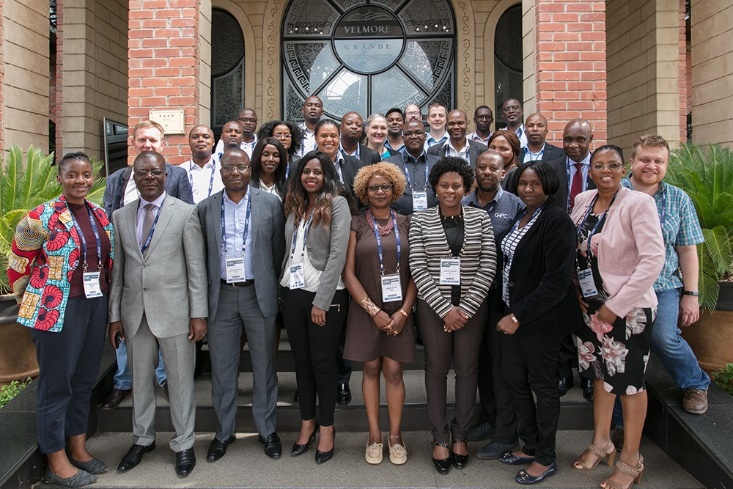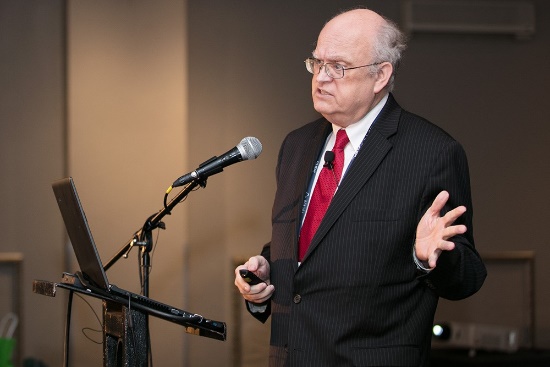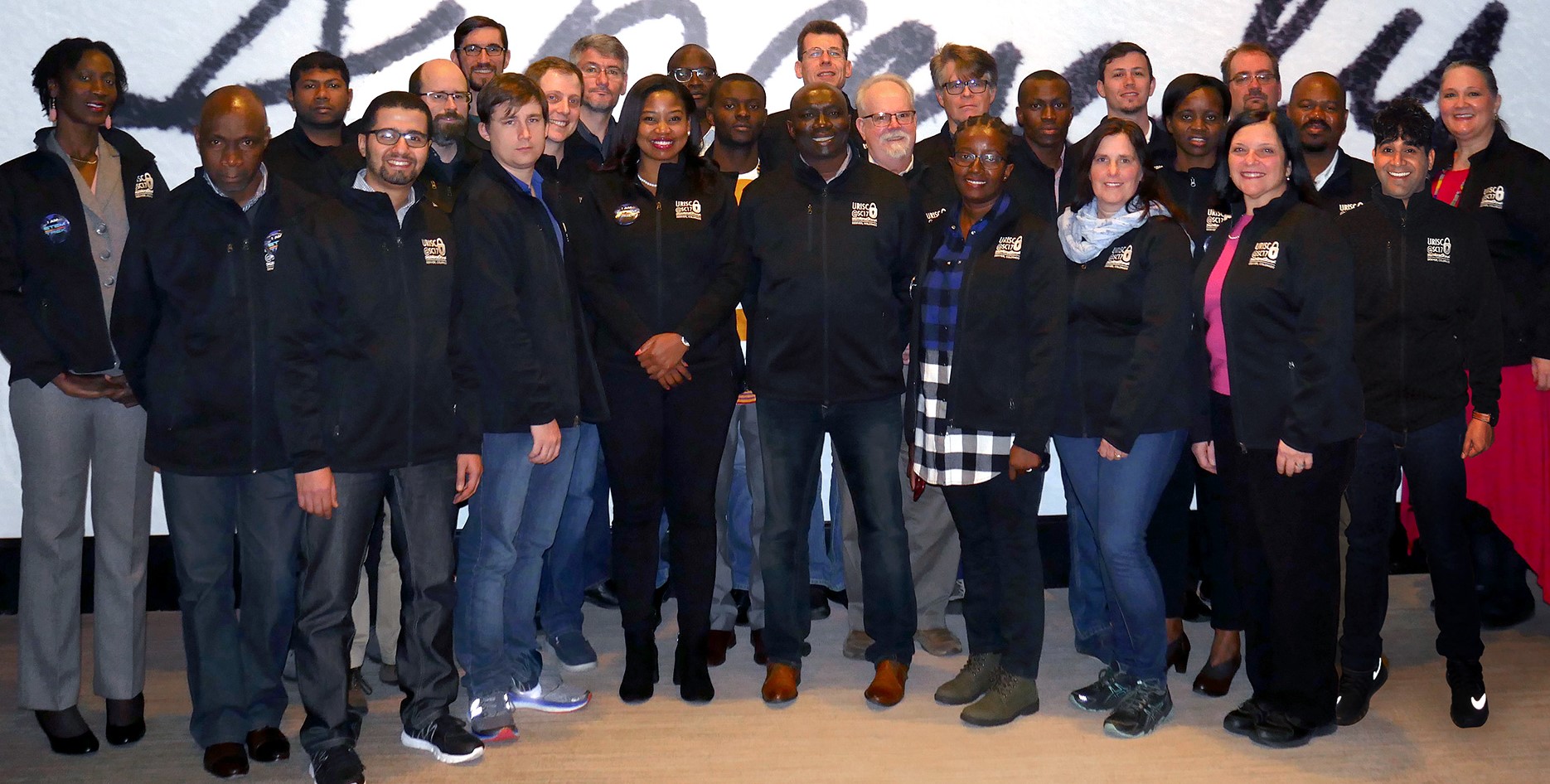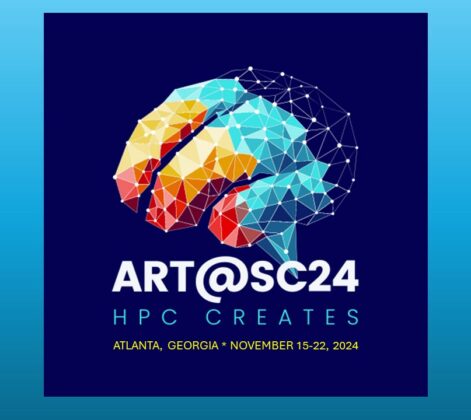By Elizabeth Leake, STEM-Trek Nonprofit
The 11th South African Centre for High Performance Computing (CHPC) Annual National Conference convened Dec. 3-7, 2017 at the Velmore Estate Hotel south of Pretoria.
CHPC, the South African Research and Education Network (SANReN) and the Data Intensive Research Initiative of South Africa (DIRISA) showcased a broad range of resources and human capital development programs that supported the conference theme, “HPC Convergence with Novel Application Models for Better Service to Research and Industry.”
The event was officially opened by Phil Mjwara, Director General of the South African National Department of Science and Technology and Hina Patel, Executive Director of the Council for Scientific and Industrial Research (CSIR) Meraka Institute. The CHPC National Conference was called to order by CHPC Director, Happy Sithole.
More than 450, including 132 students (72 competitors and 60 posters), registered for the five-day event which included two full days of workshops and tutorials, student challenges, a student poster session, plenary addresses, birds-of-a-feather sessions, and the annual co-located meetings of the Southern African Development Community (SADC) Cyberinfrastructure Collaboration Forum and the CHPC Industry Forum.
Southern African Development Community (SADC) Cyberinfrastructure Collaborative Forum
The SADC Forum first met during the 2012 CHPC National Conference. This year’s session was chaired by Mmampei Chaba (Chief Director: Multilateral and Africa, South Africa Department of Science and Technology), with SADC Secretariat Anneline Morgan.
Most delegates work for universities or government agencies that advise their national Ministries of Science and Technology as well as Information, Communication and Technology (ICT). Some are researchers, and many have teaching obligations. Among Forum goals is to develop a framework for a shared cyberinfrastructure ecosystem in the broader, sub-Saharan region. Forum delegates are also able to attend CHPC sessions where they learn useful skills and build professional networks.
SADC delegates from South Africa, Botswana, Mozambique, Namibia, Seychelles, Swaziland, Zambia, and Zimbabwe were present, and SADC announced the addition of a 16th country, Comoros, which will be the sub-Saharan region’s fourth island nation (with Madagascar, Mauritius and Seychelles).
Delegates offered a brief presentation about their national cyberinfrastructure, highlights from the past year, challenges and future plans. Advisers from South African, European and U.S. organizations were present to help those who are just getting started progress quicker by learning from the successes and setbacks that others have endured over the past decades.
One adviser, Thomas Sterling (Indiana University/CREST-US), whose early career began at the National Aeronautics and Space Administration (NASA), had great advice for SADC delegates:
Don’t shoot for the moon; aim for where the moon will be when you get there!”
Dr. Sterling also led an HPC Workforce Development workshop where he provided a sneak peek of his new book titled, “High Performance Computing: Modern Systems and Practices.” The publication was several years in the making, and reflects more than 20 years of teaching experience and pedagogical lessons learned by Sterling and his collaborators. It includes course notes, videos and the opportunity to engage with real-time, online support. The book’s intellectual contributions were supported by the US National Science Foundation (US-NSF), so it costs less than $100.00US. Since it’s affordable and self-paced, it will be extremely useful for those who wish to become HPC engineers, but can’t afford time off to train, or travel.
Several SADC delegates also attended STEM-Trek workshops in 2016 and 2017 that were co-located with the annual Supercomputing Conference in the U.S. This year, with support from the US-NSF, Google, Corelight, the SC Conference Chair, and others, 15 SADC delegates from seven countries attended a cybersecurity-themed workshop in Denver, Colorado-US November 11-18, 2017.
Many SADC sites were beneficiaries of the Ranger HPC donation by the CHPC; a system that was originally funded by US-NSF in 2008, decommissioned by the University of Texas in 2012, and donated to South Africa. Twenty-five Ranger racks were split into small, stand-alone clusters. The clusters, and a supply of spare parts, were then donated to universities in 12 locations throughout South Africa and the SADC region where they’re used for education and light research. Additional sites inherited a similar class of hardware donated by the University of Cambridge in 2014. A new donation will arrive soon—the US-NSF-funded Stampede system—decommissioned in 2016, and donated by the Texas Advanced Computing Center via the University of Texas. Stampede will replace end-of-life Ranger systems, and expand the number of sites that are participating in the HPC Ecosystems project led by Bryan Johnston (CHPC Advanced Computer Engineering (ACE) Lab Senior Technologist and Lecturer).
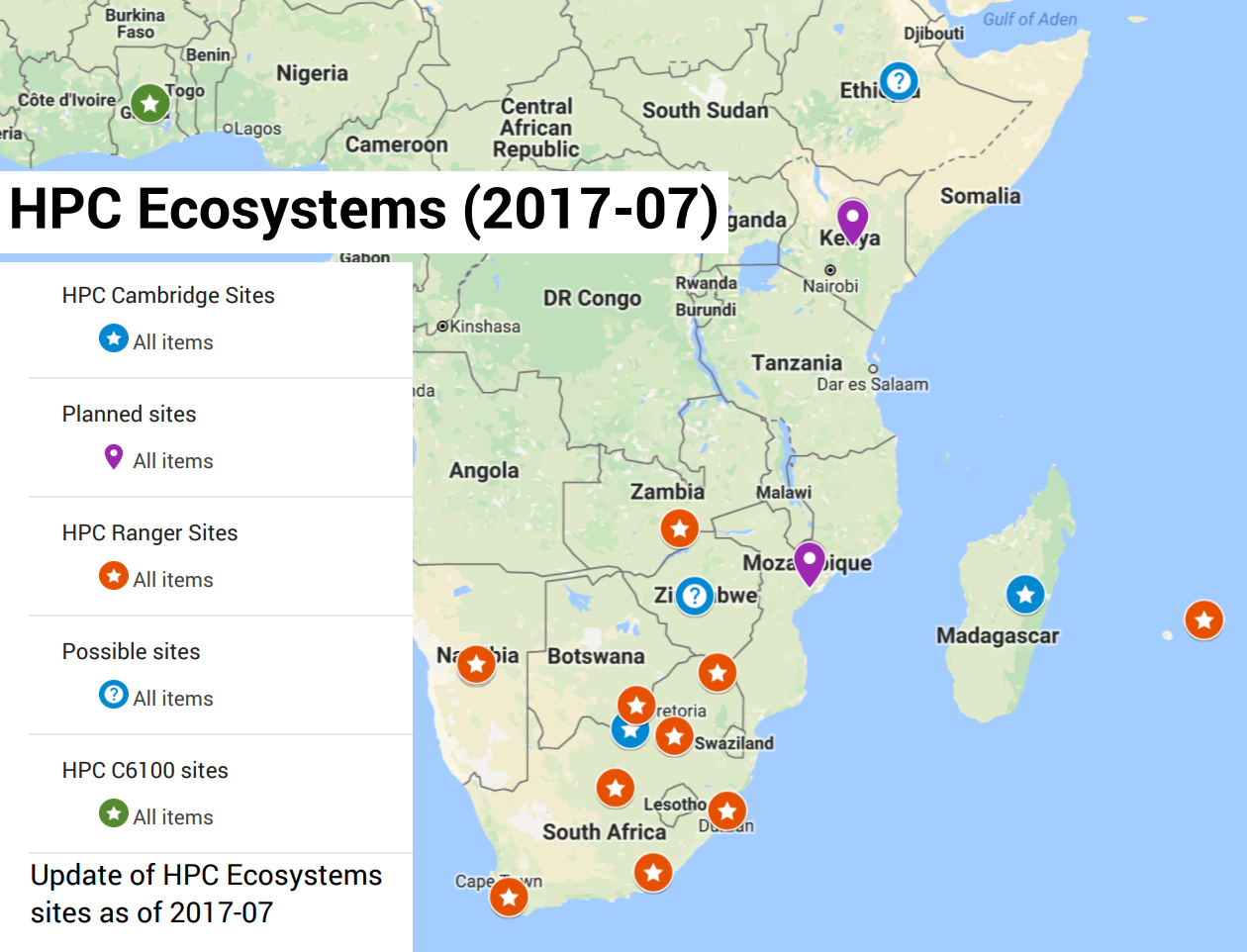
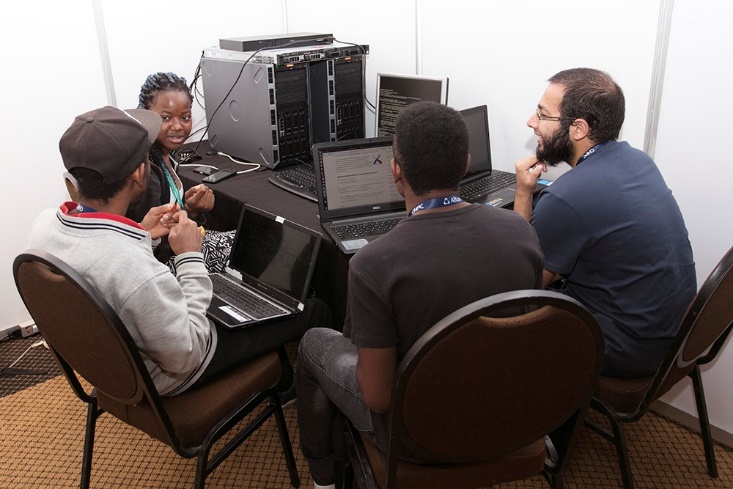 SANReN Cyber Security Challenge
SANReN Cyber Security Challenge
For the first time, SANReN hosted a Cyber Security Challenge (CSC), sponsored by the CSIR Meraka Institute.
The network security-focused challenge allowed students to decrypt passwords, geolocate pictures, secure websites, find information from TCP traffic and extract weak security keys. For the competitive finale, students participated in a live hacking scenario where they had to defend their own network infrastructure from competitors’ attacks.
It began last summer with a call for participation, and an elimination round that drew more than 100 students. Thirty-one were chosen to attend the second round in December. Six universities were represented, including North West University, the University of Pretoria, Rhodes University, University of Stellenbosch, University of the Witwatersrand, and the University of the Western Cape.
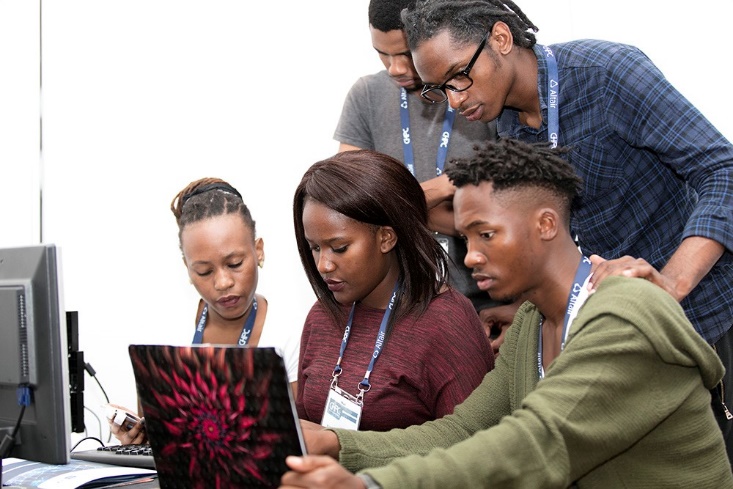 CHPC Student Cluster Competition
CHPC Student Cluster Competition
This was the sixth year for the CHPC Student Cluster Competition (SCC). Thanks to Dell-EMC and Mellanox hardware donations, plus Dell’s generous program support, the winning South African team will train for a week in Austin, Texas, and then journey to Frankfurt, Germany next summer to compete in the International Supercomputing Conference Student Cluster Competition (ISC-SCC) where South African teams have placed first or second since they first began to compete in 2010.
But the opportunity to compete in the ISC-SCC means much more to South Africa than a chance to win coveted first prize. ISC rules allow students to compete for as many as four years running. By the time they arrive in Frankfurt, some others have participated in as many as ten or more competitions. With this added exposure, it’s easier to develop the stellar skills that winning teams typically demonstrate.
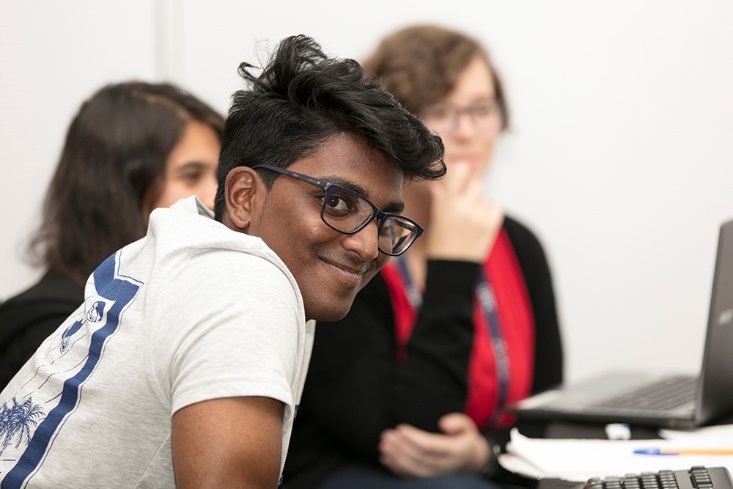 South Africa, however, imposes two self-limiting rules for its program. Each year, an entirely-new team is chosen, and the organizing committee makes every effort to engage the broadest possible number of schools. This ensures that students from disadvantaged backgrounds and demographics that are underrepresented in the use of advanced computational and data science fields have a chance to get their foot in the door. “Many of our finalists have only recently become acquainted with Linux and have never competed; their learning curve is much steeper,” said Competition Organizer David Macleod (CHPC ACE Lab).
South Africa, however, imposes two self-limiting rules for its program. Each year, an entirely-new team is chosen, and the organizing committee makes every effort to engage the broadest possible number of schools. This ensures that students from disadvantaged backgrounds and demographics that are underrepresented in the use of advanced computational and data science fields have a chance to get their foot in the door. “Many of our finalists have only recently become acquainted with Linux and have never competed; their learning curve is much steeper,” said Competition Organizer David Macleod (CHPC ACE Lab).
The process begins each summer. This year in June, 120 students applied, and 80 students were chosen—20 four-person teams—to participate in the first-round competition at Stellenbosch University in July. Forty students from the top teams returned to compete in the ‘South African Champs’ competition at the Velmore Estate in December.
SCC finalists represented six universities, including Rhodes University, University of Limpopo, Stellenbosch University, Khulisa Academy, Wits University and University of the Free State. Choosing a diverse final team was easier since the initial cohort was extremely diverse: 38 percent female, 50 percent black, 10 percent Indian and 3 percent Asian. Most student competitors are pursuing computer science or electrical engineering degrees. “Each year an increasing number of “long-tail” disciplines are represented, including some that are pursuing bachelor of arts degrees,” said Macleod.
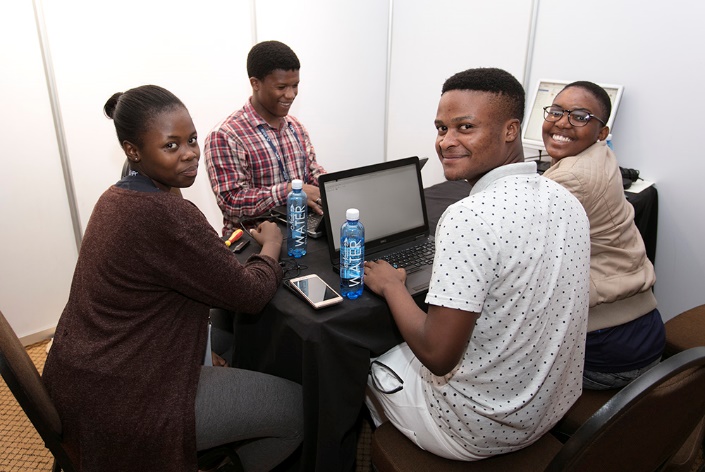 The Dell Development Fund, with help from the CHPC, sponsored a team from Khulisa Academy which prepares disadvantaged students for postsecondary education and careers. Four Khulisa contenders, including two women, are in their second year at KA where they entered after completing the twelfth grade.
The Dell Development Fund, with help from the CHPC, sponsored a team from Khulisa Academy which prepares disadvantaged students for postsecondary education and careers. Four Khulisa contenders, including two women, are in their second year at KA where they entered after completing the twelfth grade.
The CHPC organizing team includes: David Macleod (ACE Lab Manager, Competition Organizer); Matthew Cawood (ACE Lab Engineer, Lecturer, Tutor and Benchmark Guy); Israel Tshililo (ACE Lab Engineer, Tutor); Bryan Johnston (ACE Lab Senior Technologist, Lecturer); Sakhile Matsoka (ACE Lab Engineer, Tutor); and John Poole (CHPC BSP Manager, Lecturer).
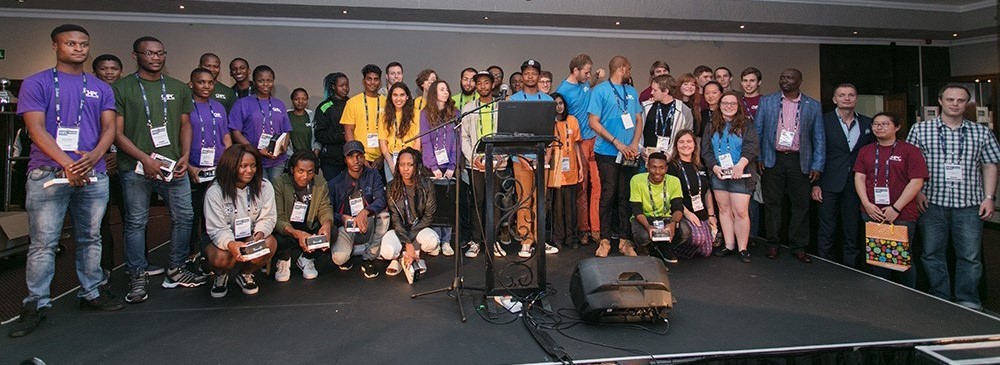
David Mcleod (far right, blue checked shirt), with 2017 Student Cluster Competition competitors at the Velmore Estate Hotel.
 There were even younger faces at the CHPC conference this year since students from five regional grammar schools participated in a special CHPC field trip. The children listened to high-tech plenary addresses, visited vendor booths, and watched the cluster and cybersecurity competitors in action. It was excellent exposure for South Africa’s youngest prospects who got a glimpse of what it’s like to enter the high-tech workforce pipeline.
There were even younger faces at the CHPC conference this year since students from five regional grammar schools participated in a special CHPC field trip. The children listened to high-tech plenary addresses, visited vendor booths, and watched the cluster and cybersecurity competitors in action. It was excellent exposure for South Africa’s youngest prospects who got a glimpse of what it’s like to enter the high-tech workforce pipeline.
And the winners are!
University of the Witwatersrand (Wits) teams captured first, second and third place at the contest. The winning team of four, plus two selected standout individuals and two reserves selected by the judges from other teams, will travel to Frankfurt to compete in the ISC-SCC next June.
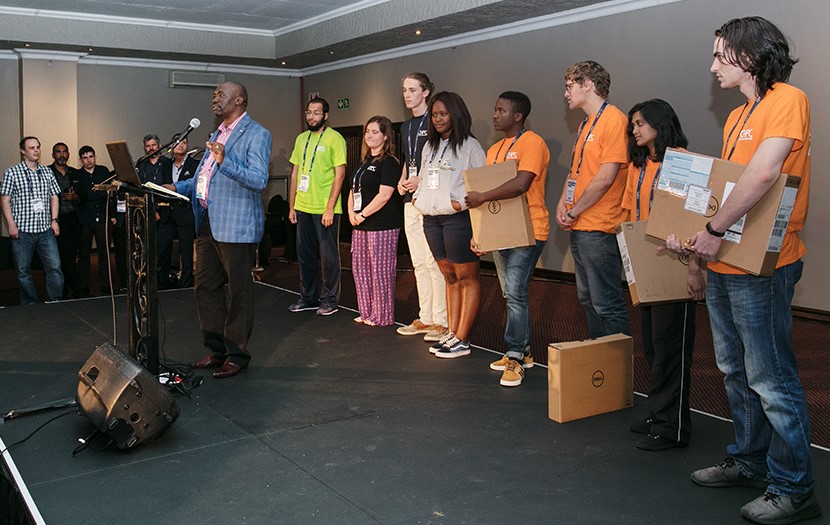
Dr. Sithole (Director, CHPC and Meraka Institute) announced the winning team that will travel to Frankfurt. The winning team members received a Dell laptop as first-prize. From left: Nathan Michlo (Wits, HPC Club); Sharon Evans (Wits, Giga Biters); Zubair Bulbilia (Wits, Gekko); Njabulo Sithole (University of Limpopo, Phoenix Bit); Katleho Mokoena (Wits, Wits1); Meir Rosendorf (Wits, Wits1); Kimessha Paupamah (Wits, Wits1); and Joshua Bruton (Wits, Wits1).
To preview the many natural wonders South Africa has to offer, visit Jen Reviews: 100 Best Things to do in South Africa.
This article was originally published by HPCwire on December 20, 2017.

